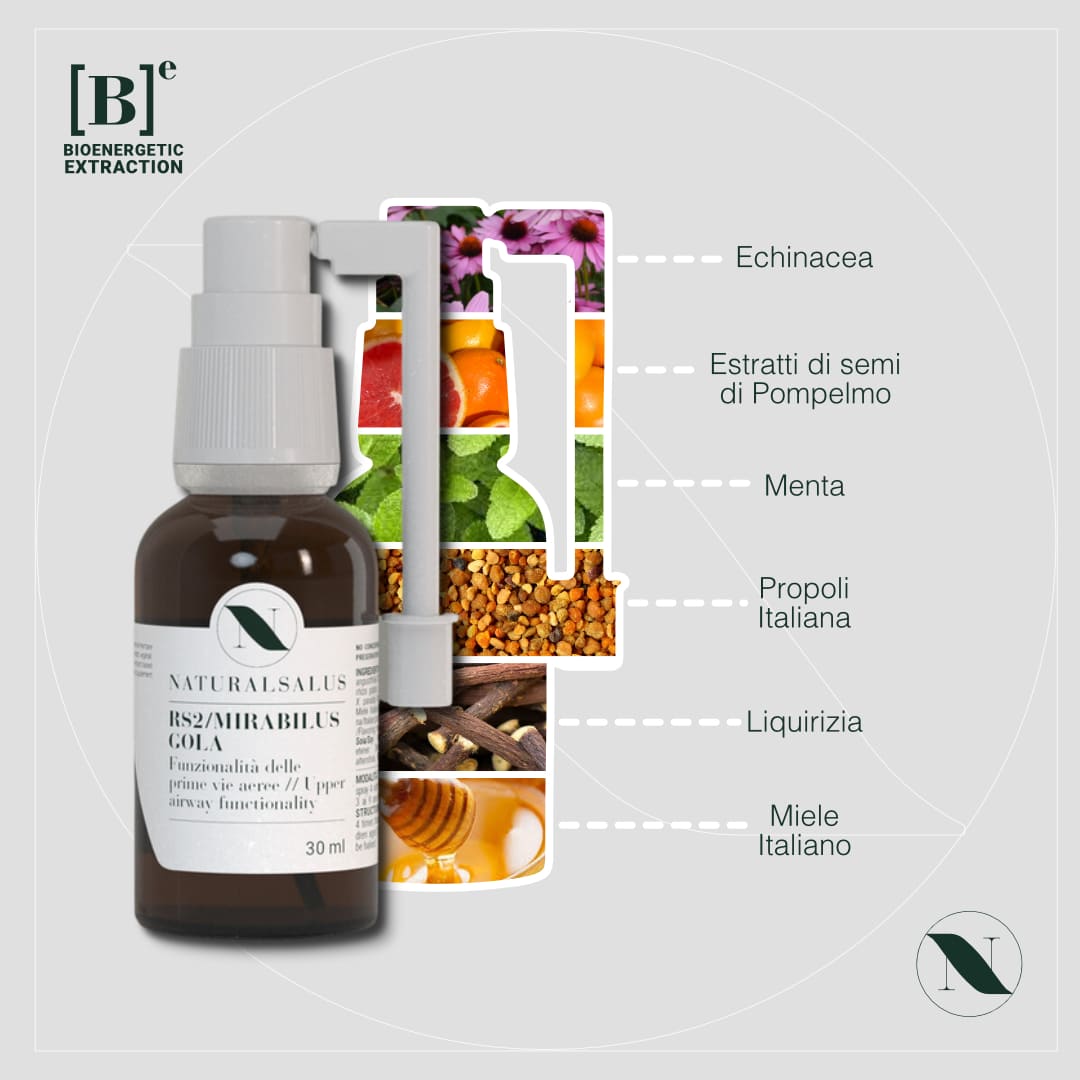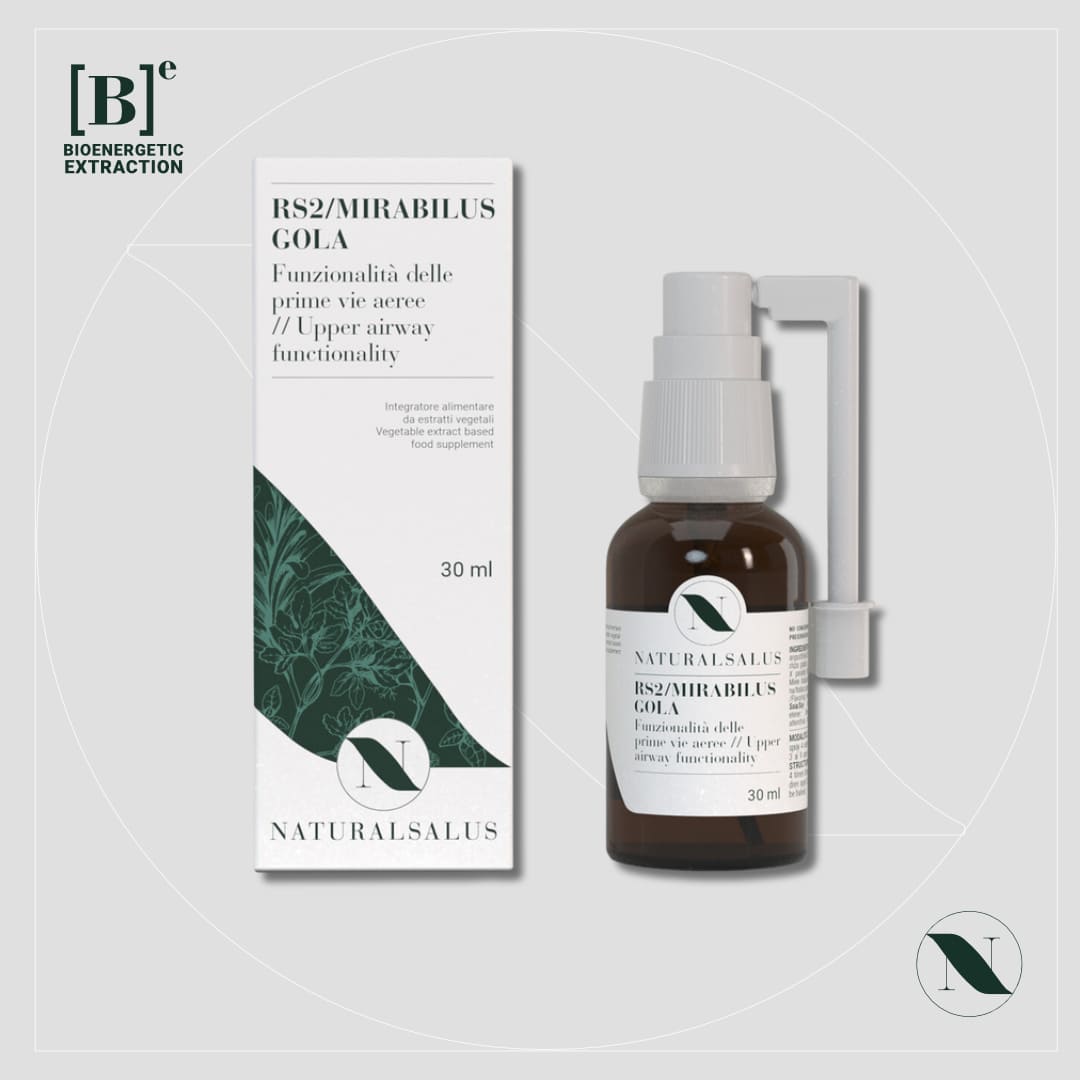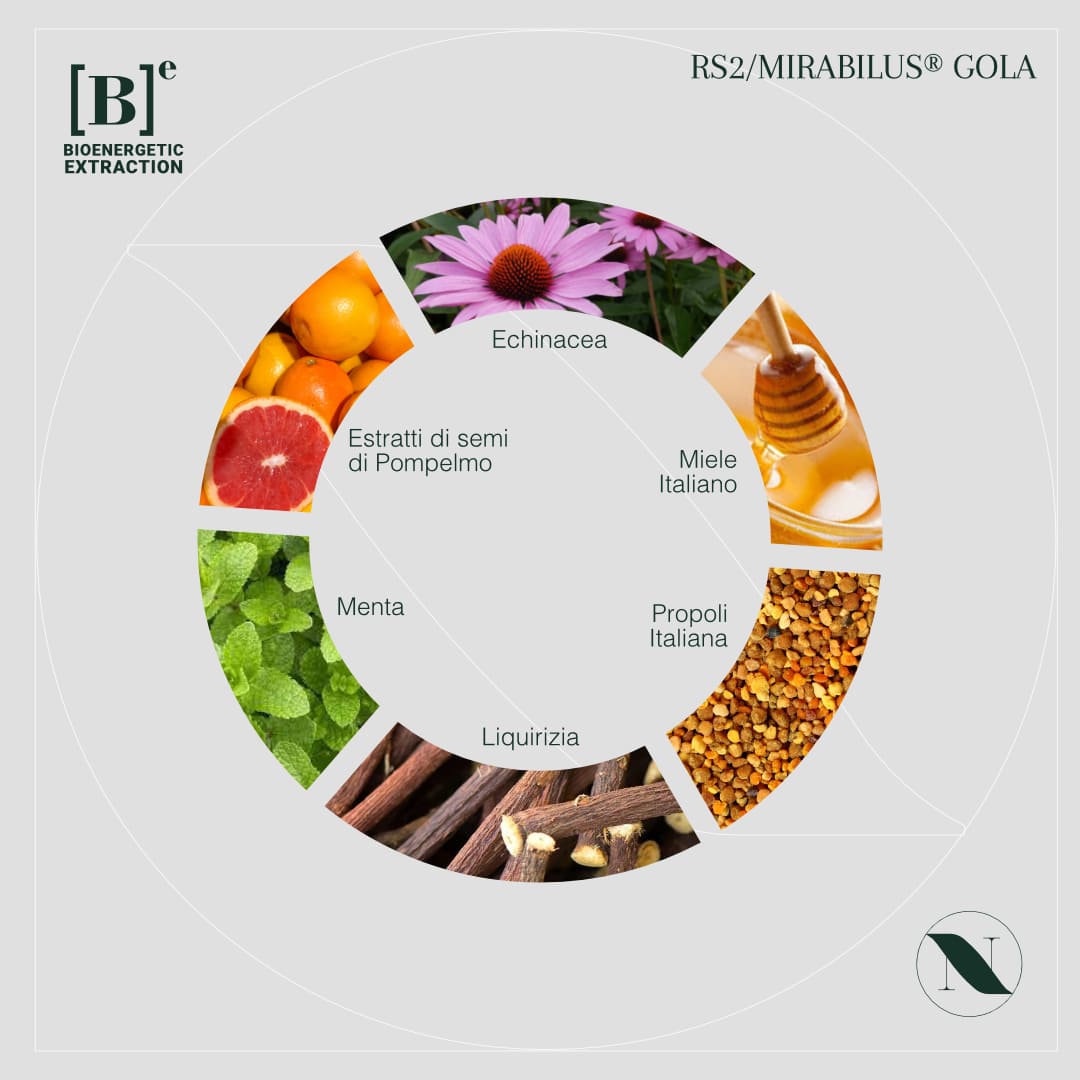

RS2/MIRABILUS® GOLA - Natural sore and irritated throat food supplement
Immediate relief from inflamed throats - Natural antimicrobial action spray
When the upper airways experience inflammation i.e. burning throat pain, swallowing discomfort, altered voice: one needs rapid, targeted natural help. NATURALSALUS’ RS2/MIRABILUS® GOLA is a phytotherapeutic spray designed to act on acute mouth and throat discomforts such as pharyngitis, laryngitis and viral sore throats. Also aiding the immune system defences.
An exclusive mix of active plant ingredients - Italian Propolis, Echinacea, Liquorice, Grapefruit Seed and Tea Tree Oil possessing antibacterial, antiviral and anti-inflammatory action. RS2/MIRABILUS® GOLA soothes inflammation, disinfects the oral cavities and helps the body fight off upper respiratory tract infections from the onset of the first symptoms.



Explore other areas of wellbeing
Discover all our other products, organised by condition, benefit, stage of life or lifestyle, and find the natural supplements that best suit your needs.



